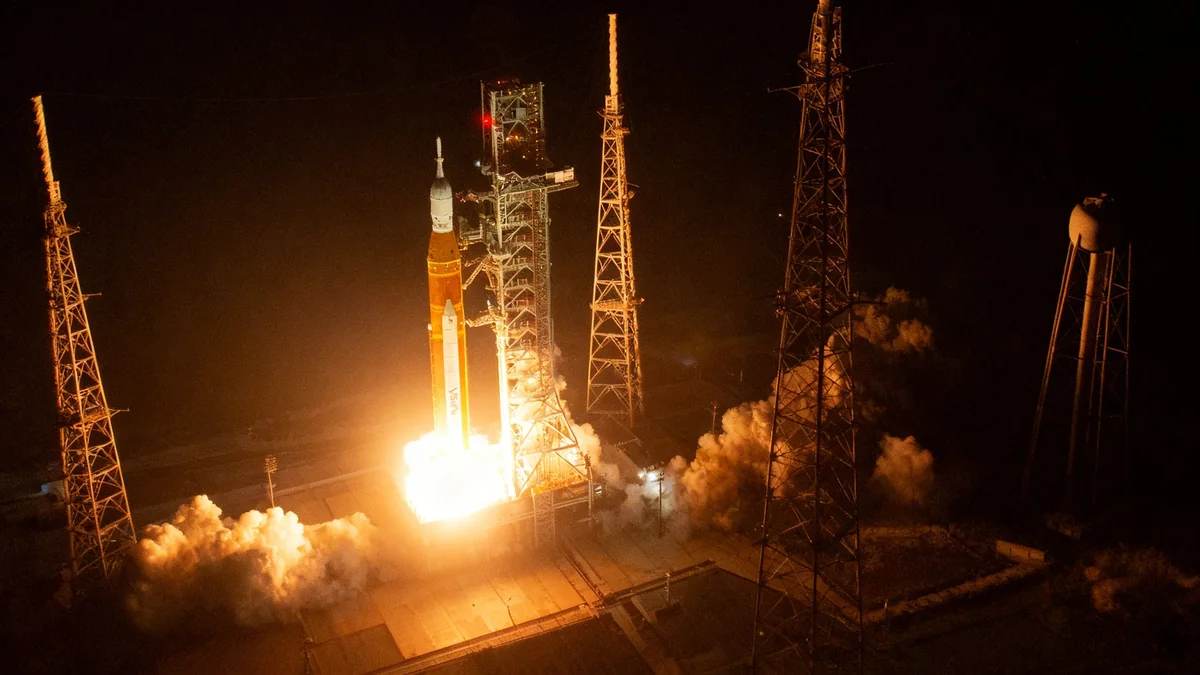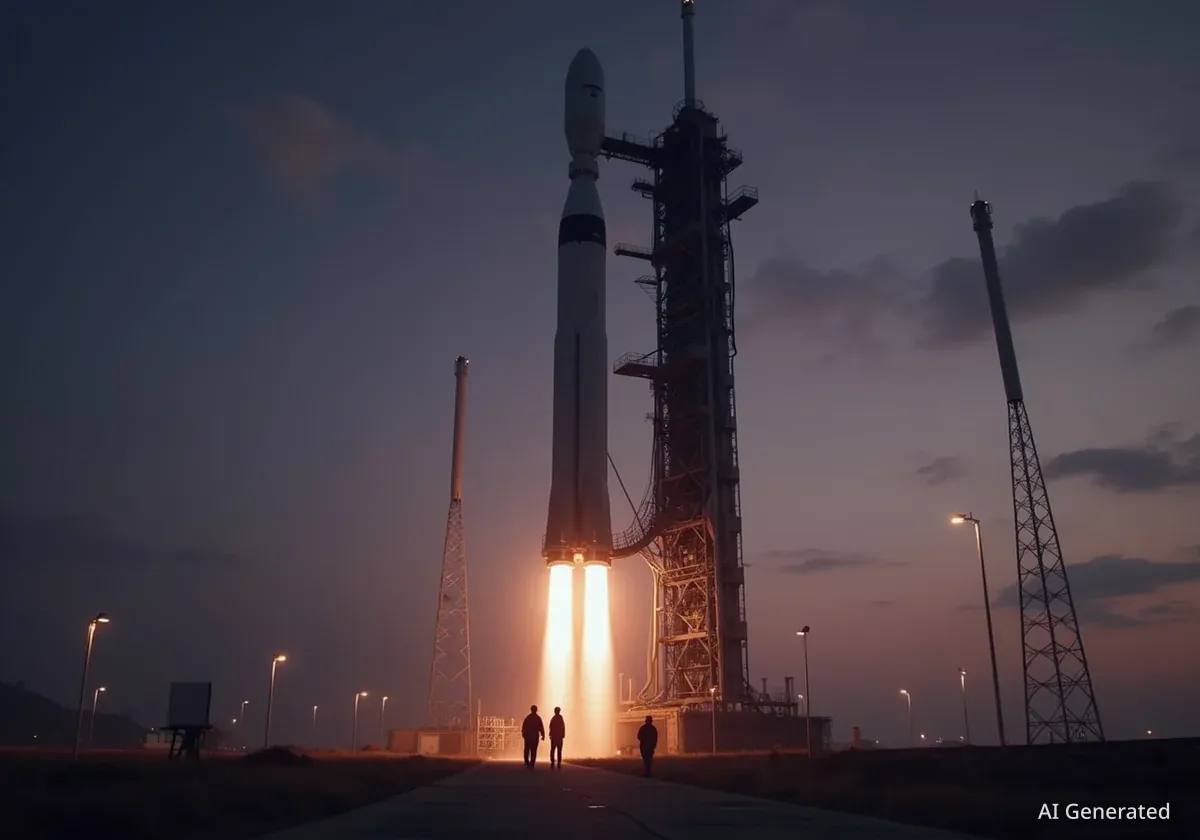Space is no longer a domain reserved for a few powerful nations; it has become critical infrastructure for economic development, national security, and environmental resilience. Today, more than 90 countries have active satellite programs, a significant increase from just a few dozen a decade ago, highlighting a global shift towards leveraging space-based technologies.
In response to this rapid expansion, the World Economic Forum, in partnership with PwC, has introduced the National Space Strategy Toolkit. This initiative is designed to guide countries in creating focused and efficient space strategies that align with their specific national objectives and resource capabilities.
Key Takeaways
- Over 90 countries now have satellite programs, with 80 space agencies operating globally.
- The World Economic Forum and PwC have launched a toolkit to help nations develop effective space strategies.
- Space technologies directly support nearly 40% of the UN's Sustainable Development Goal targets.
- Private investment in the space sector reached €7 billion, a 20% increase between 2023 and 2024.
- Without a clear strategy, nations risk inefficient spending and missing key economic and diplomatic opportunities.
The Evolving Role of Space in National Development
The perception of space has transformed from a frontier for scientific exploration into a vital component of modern infrastructure. Services enabled by space technology, such as Earth Observation (EO), satellite communications, and Positioning, Navigation, and Timing (PNT), are fundamental to many sectors.
These services support critical functions like disaster management, precision agriculture, and urban planning. The growing accessibility of space means governments must now consider how to engage with space, not if they should.
"Space has, for the past 50 years, been a force for good, supporting nations’ efforts through countless ways, such as nature and climate monitoring and connecting remote communities," said Josef Aschbacher, Director-General of the European Space Agency.
From Exploration to Essential Services
Historically, national space programs were defined by large-scale missions and government-led exploration. Today, the landscape is much different. The rise of the commercial space industry has lowered the barrier to entry, allowing more countries to benefit from space without developing rockets or satellites from the ground up.
This shift allows nations to focus on developing downstream applications that use space data to address immediate national needs, representing a more resource-efficient approach to building space capabilities.
Global Space Activity by the Numbers
- Active Satellites: Approximately 12,000 are currently orbiting Earth.
- Low Earth Orbit (LEO): Over 80% of active satellites reside in LEO.
- 2024 Launches: There were 259 launches, placing 2,873 spacecraft into orbit.
- Commercial Dominance: Commercial providers were responsible for 70% of spacecraft launched in 2024.
Five Core Reasons for a National Space Strategy
A coherent national space strategy is crucial for harnessing the full potential of space activities. Without a clear plan, countries risk fragmented investments and missed opportunities. Here are five key reasons why such a strategy is indispensable.
1. Driving Sustainable Development Goals
Space-based services are powerful tools for achieving global sustainability targets. According to the UN Office for Outer Space Affairs, nearly 40% of the 169 Sustainable Development Goal (SDG) targets are directly supported by space technologies.
Satellite data helps monitor deforestation, manage water resources, and improve agricultural yields. As global challenges like climate change intensify, integrating space into national SDG frameworks is essential for effective, data-driven policymaking.
Real-World Impact of Space Technology
Several nations are already using space data to solve local problems. In Senegal, high-resolution satellite imagery was used to map flood-prone areas, improving urban planning and disaster preparedness. The Philippines launched a dedicated internet satellite to expand connectivity in remote communities, while PNT data in the Galápagos Islands helped track reintroduced tortoises to restore ecological balance.
2. Creating Efficient Pathways to Space
Engaging in the space sector no longer requires massive, resource-intensive programs. The growth of commercial space services provides accessible entry points. Nations can now focus on specific segments of the space technology stack, such as data analytics or application development, that align with their economic strengths and national needs.
This targeted approach allows for the efficient use of resources to develop practical applications, rather than investing heavily in traditional upstream activities like manufacturing launch vehicles.
3. Enhancing International Diplomacy
In an increasingly complex geopolitical environment, space offers a unique platform for diplomacy. Participation in international bodies like the United Nations Committee on the Peaceful Uses of Outer Space (COPUOS) allows nations to influence global space governance and forge strategic partnerships.
Space diplomacy reinforces peaceful collaboration and establishes a country's presence on the global stage, enhancing national prestige and ensuring its interests are represented in discussions on orbital traffic and resource allocation.
4. Fueling Economic Growth
The space economy is a significant driver of innovation and investment. Private investment in the sector grew by 20% between 2023 and 2024, reaching €7 billion. Furthermore, space activities generate substantial economic spillovers.
Studies show that developing space infrastructure can lead to 1.8 to 3.2 times its value in additional economic revenue. The exploitation of that infrastructure can generate 4 to 8 times its value in spillover benefits across the wider economy, from advanced manufacturing to data services.
"Earth observation has the potential to add a cumulative $3.8 trillion to global GDP by 2030 and delivers a holistic view of complex system dynamics," noted Yana Gevorgyan, Secretariat Director at the Group on Earth Observations. She added that this presents a "unique opportunity to leapfrog traditional development models."
5. Keeping Pace with Global Acceleration
The pace of space activity is accelerating rapidly. With decreasing launch costs and the expansion of commercial services, the benefits of space are more accessible than ever. Nations that delay developing a space strategy risk falling behind technologically and becoming dependent on external providers for critical data and services.
Active participation is necessary to secure a voice in global forums that are shaping the rules for future space activities. Without a seat at the table, a nation's interests could be overlooked.
Navigating the Challenges of Building a Space Program
Despite the opportunities, developing a national space program presents challenges. Limited financial resources, shifting political priorities, and a lack of domestic expertise can hinder progress. The sheer number of options, from investing in satellite manufacturing to developing data analytics applications, can be overwhelming.
A clear national space strategy helps overcome these obstacles. It provides a roadmap that aligns space activities with broader national priorities, prevents fragmented investments, and ensures the efficient use of public resources.
"The evolving space ecosystem is a dynamic network of science, industry, government and economic development," stated Pascale Ehrenfreund, President of the Committee on Space Research. "To ensure sustainable progress, scientific discoveries must inform space strategies, mission planning, policy and regulations."
A New Toolkit for National Strategy
To address these challenges, the World Economic Forum and PwC created the National Space Strategy Toolkit. This practical guide is designed to help any nation, regardless of its current space capabilities, develop or refine its strategy.
The toolkit provides actionable recommendations based on an analysis of global best practices. It helps nations align their space ambitions with national priorities, outlining the costs, timelines, and prerequisites for various actions. By offering a structured approach, the toolkit aims to empower governments to make informed decisions that deliver lasting socio-economic benefits.
The message for global leaders is clear: the time to act on space is now. A well-defined national strategy is the key to unlocking economic growth, ensuring sustainable development, and securing a nation's influence in the decades to come.





